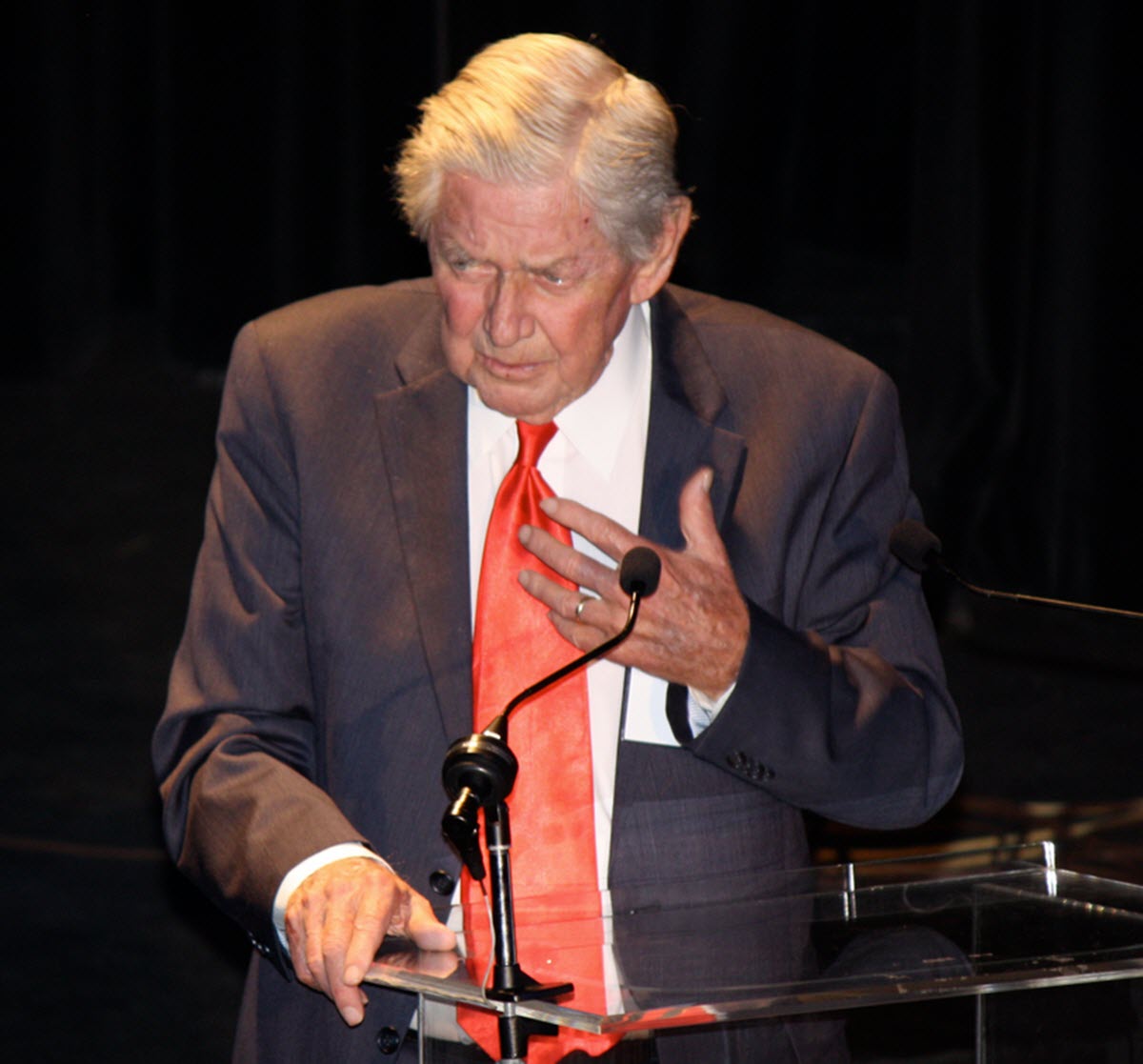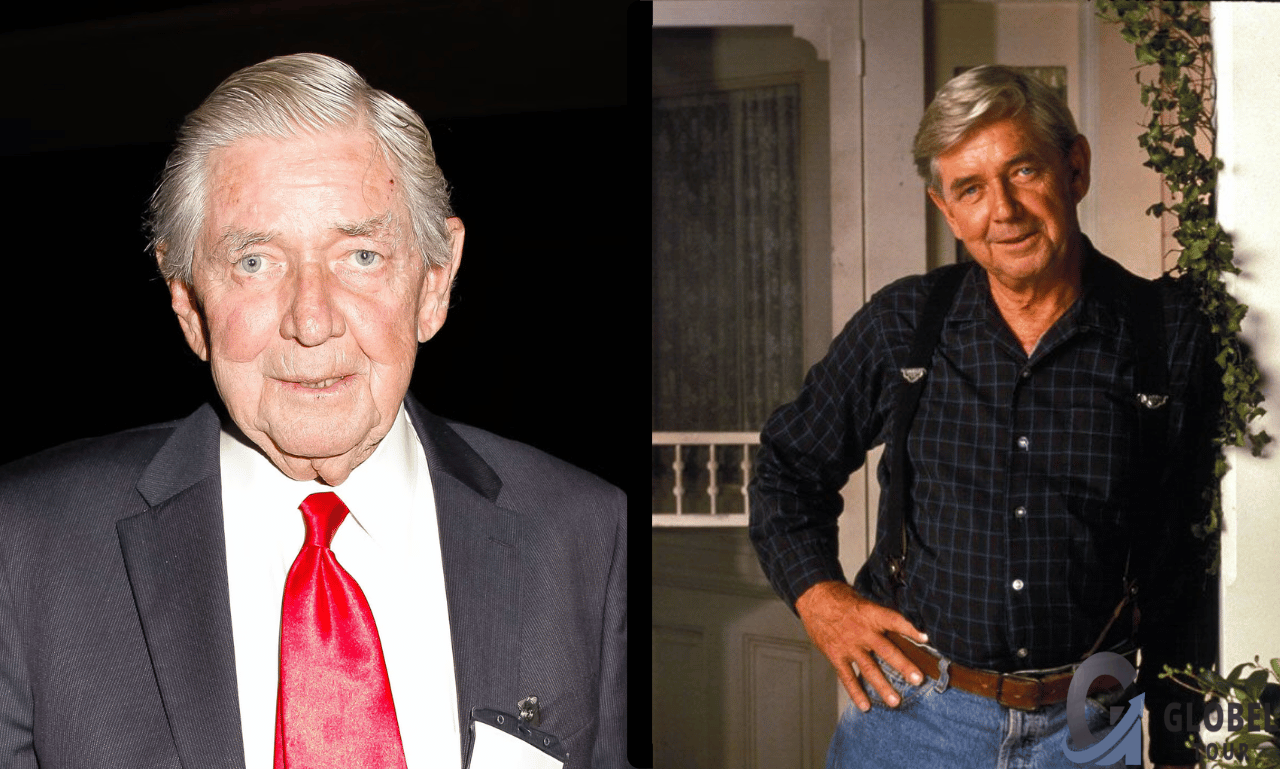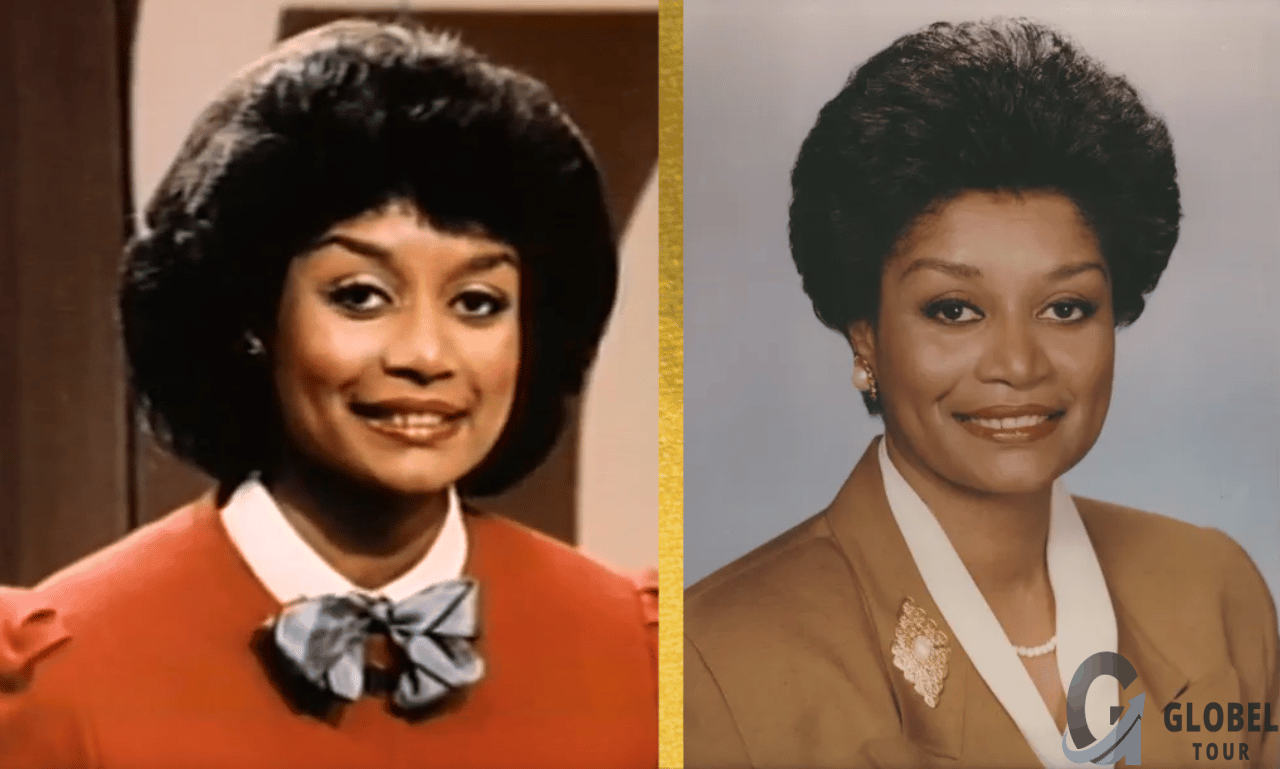Ralph Waite was a remarkable actor whose career spanned over five decades, during which he became a beloved figure in both television and film. Known for his portrayal of John Walton Sr. on the iconic television series The Waltons, Waite’s career encompassed a wide range of roles that showcased his versatility as an actor. His profound understanding of human emotions and his ability to bring characters to life made him a staple in the entertainment industry.
This article delves into Ralph Waite’s life and career, exploring his early years, rise to fame, notable roles, and the enduring influence he left on Hollywood. We will also examine his personal life, contributions to charity, and legacy that continues to inspire future generations of actors and fans.
Early Life and Formation of Character

Ralph Waite was born on June 22, 1928, in White Plains, New York. He grew up in a working-class family as the youngest of five children. His parents were devoutly religious, and it was in this environment that Ralph Waite learned the values of kindness, hard work, and integrity—qualities that would later define his on-screen persona.
After graduating from high school, Waite attended the University of New York at Albany. Here, he began his journey into the world of theater, studying English and drama. His passion for acting blossomed during his college years, and it became clear that the stage was where he wanted to be. Waite’s determination led him to Yale University’s prestigious School of Drama, where he studied acting and refined his skills.
During his time at Yale, Ralph Waite developed a deep appreciation for the craft of acting. His dedication to his studies set the stage for his future success in both theater and television. As a young actor, he worked in various regional theater productions, gaining valuable experience before transitioning to Hollywood.
Rise to Prominence: The Waltons
While Ralph Waite had several roles in television and film before, it was his portrayal of John Walton Sr. on The Waltons that truly catapulted him into the spotlight. The show, which first aired in 1972, focused on the Walton family—a group of individuals trying to make their way through the hardships of the Great Depression and World War II in rural Virginia.
Waite’s portrayal of the father figure, John Walton Sr., resonated deeply with audiences. The character John is a loving, wise, and hardworking patriarch who prioritizes his family above all else. Waite’s ability to portray the depth of this character’s love, strength, and vulnerability made him a household name. The show became a cultural phenomenon, winning multiple awards and running for nine successful seasons, from 1972 to 1981.
As the father of seven children, John Walton Sr. was a figure of moral authority on the show. He was the glue that held the Walton family together during times of both joy and hardship. Waite’s nuanced performance demonstrated his remarkable range as an actor, allowing him to switch between stern discipline and tender care effortlessly.
Beyond the family dynamics, The Waltons was also about community, perseverance, and the importance of a strong moral compass, values that Ralph Waite himself held dear. His performance was not only one of the highlights of the show but also one of the cornerstones that allowed it to become so enduring and beloved. His portrayal of John Walton Sr. remains one of the most iconic father figures in television history.
Diverse Career Beyond The Waltons
Though Waite will always be most remembered for his role as John Walton, his career extended far beyond the walls of The Waltons. After the show’s end in 1981, Ralph Waite continued to be an active and respected presence in both television and film. His versatility as an actor allowed him to take on a wide range of roles, each reflecting a different facet of his talent.

Film Appearances
In the years following The Waltons, Ralph Waite appeared in a variety of films, showcasing his range as an actor. From dramatic roles to comedic ones, Waite’s ability to immerse himself in diverse characters was a testament to his acting prowess. He appeared in films like The Great Waldo Pepper (1975), a film about a barnstorming pilot, and Clute (1970), a psychological thriller that highlighted his ability to navigate complex, emotionally charged characters.
One of his more well-known film roles came in 1992 when he starred in The Bodyguard alongside Whitney Houston and Kevin Costner. While his role in this action-packed film was relatively minor, Waite’s presence was felt. His portrayal of a caring father figure served as an anchor to the emotional undercurrent of the story, complementing the more glamorous aspects of the film.
In 1995, Waite joined Clint Eastwood in The Bridges of Madison County, a romantic drama based on the novel by Robert James Waller. This film allowed Ralph Waite to show his skill in a subtler, more nuanced role that deviated from his usual typecasting. His performance, as a supporting character, resonated with audiences for its emotional depth and sincerity.
Waite’s film career continued well into his later years, as he appeared in the 2012 film The Forger, working alongside John Travolta. This marked one of his final roles before his passing in 2014, and it showed that Waite’s commitment to his craft never wavered, even as he entered his 80s.
Television Appearances
Ralph Waite also made numerous appearances on television shows throughout his career. His television roles spanned various genres, from crime dramas to comedies. One of his notable later television roles was as Jackson Gibbs, the father of Mark Harmon’s character Leroy Jethro Gibbs, on the hit show NCIS. Waite’s portrayal of the elder Gibbs was well-received, bringing an added layer of warmth and emotional depth to the series.

Ralph Waite also appeared in popular series such as Gunsmoke, The Rookies, The Streets of San Francisco, and The Twilight Zone. Each role demonstrated his flexibility and skill in portraying a wide variety of characters. Whether he was playing a lawman, a supportive friend, or a troubled soul, Waite’s performances left an indelible mark on audiences and critics alike.
Personal Life and Advocacy
Ralph Waite’s personal life was characterized by his strong sense of social responsibility, deep faith, and commitment to charitable causes. He was known for being a kind, down-to-earth man who cared deeply for others, both within his industry and beyond it. Waite’s values often aligned with the roles he portrayed, particularly his deep devotion to family and community.
Waite’s philanthropic efforts included support for various causes, particularly those related to children, the elderly, and the underserved. He was involved in numerous charities throughout his life, offering financial and emotional support to a variety of causes that aligned with his belief in kindness and social justice. This sense of compassion extended to his on-screen work, where he often portrayed characters who stood up for others, upheld moral values and sought to bring about positive change in their communities.
Beyond his charitable endeavors, Waite was also deeply committed to his faith. He was known to draw inspiration from his Christian beliefs, which helped shape his understanding of morality and humanity. His faith was an important part of his identity, and it informed many of his personal and professional decisions.
Health Struggles and Final Years
As Ralph Waite grew older, he began to face a series of health challenges. Despite these struggles, he remained dedicated to his craft and continued to act in various projects. In his later years, Waite was often seen appearing in smaller roles, but his performances continued to be impactful, showcasing the experience and wisdom he had gained over the decades.
Waite passed away on February 13, 2014, at the age of 85. His death marked the end of an era, as one of television’s most beloved patriarchs was no longer with us. Waite’s death was mourned by his fans, fellow actors, and colleagues, all of whom recognized the unique contributions he made to the entertainment industry. His role as John Walton was perhaps the most important part of his career, but his influence and impact were felt far beyond that iconic role.
Lasting Legacy
Ralph Waite’s legacy endures through his diverse body of work. His portrayal of John Walton Sr. on The Waltons remains one of the most beloved father figures in television history. The show’s message of love, family, and perseverance continues to resonate with audiences today. Waite’s commitment to portraying characters who were grounded in moral values and deep emotional connections set a standard for future generations of actors.
In addition to his acting achievements, Waite’s charitable work and dedication to social justice left an indelible mark on the world. His kindness, generosity, and advocacy for the underprivileged continue to serve as an inspiration for both his peers and fans.
Influence on Future Generations
Waite’s impact on future generations of actors cannot be overstated. His portrayal of John Walton Sr. served as a blueprint for the depiction of father figures in television. His ability to balance authority with tenderness, and strength with vulnerability, made his portrayal timeless and resonant. For many actors, Waite was an example of how to portray complex, multidimensional characters with depth and sincerity.
Waite’s influence extended beyond acting. His dedication to charity and his advocacy for social causes inspired countless individuals to follow in his footsteps. His belief in the importance of community and his commitment to giving back made him not only a respected actor but also a beloved public figure.
Conclusion
Ralph Waite’s career and legacy are defined by his versatility as an actor, his unwavering dedication to his craft, and his compassion for others. From his iconic role as John Walton Sr. on The Waltons to his numerous other film and television appearances, Waite’s work continues to be celebrated by fans and industry professionals alike. Beyond his professional achievements, Waite’s personal life was a reflection of his deep values, which he carried into his work, his charity, and his relationships.
Ralph Waite’s legacy is one of kindness, integrity, and compassion—a legacy that will continue to inspire actors, fans, and individuals for generations to come.




